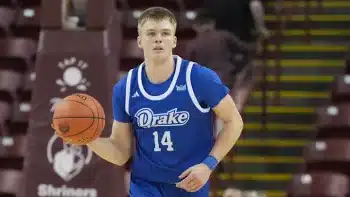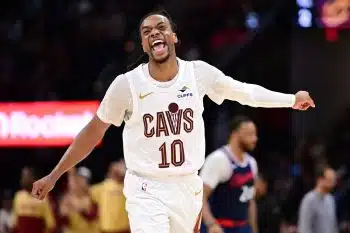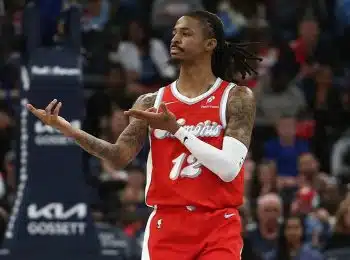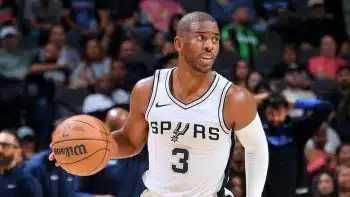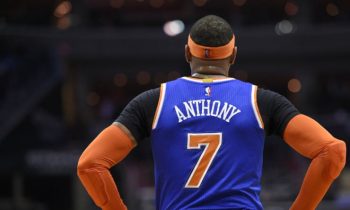NBA
NBA PM: Players Who Flourish During the Postseason
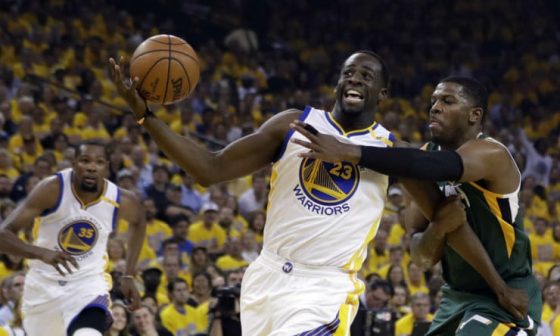
The level of competition gets higher during the postseason for any major team sport, and perhaps nowhere is the effect more visible than within the game of basketball. The game changes in the playoffs; pace slows and field goal percentages drop as defenses hone in on top options. Turnovers become tougher to force as every possession carries that much more weight, and foul rates tick up as physicality becomes a point of emphasis.
Naturally, then, it’s no surprise that the majority of players get “worse” in the playoffs by our traditional measures of quality – even (and sometimes especially) star-level guys. It’s hard to maintain that season-long stat line when games against the league’s bottom dwellers are nowhere to be found, and even more so when you’re at the top of a scouting report teams can put their full focus into.
Even some of the game’s consensus greatest players see notable, marked drop-offs during the playoffs. A guy like DeMar DeRozan is a contemporary example you hear raised a lot, but even brighter stars aren’t immune. Did you realize that the great Larry Bird shot just 32 percent from three in his playoff career, compared to nearly 38 percent in the regular season? They aren’t always big gaps, but even some of the biggest stars on earth can’t sustain their typical production in the crucible of a playoff series.
What about guys who trend in the opposite direction, then? We’re not just talking about big moments or big shots; some guys are able to become more productive and valuable across large swaths of playoff minutes, despite the difficulties in doing so we’ve just outlined.
Who are some of these guys, and what are they doing differently? The 2016-17 playoffs have offered a few perfect examples.
Otto Porter Jr., Washington Wizards
The Wizards were destroyed during the 200 minutes Porter sat on the bench this postseason, and it wasn’t even the first time that’s happened. A yearlong playoff gap clouds memories, but Porter – not John Wall or Bradley Beal – was the only guy on the roster without whom the Wizards were outscored on a per-possession basis in their last playoff appearance in 2014-15.
This isn’t just noise from overlapping substitution patterns with Wall and Beal, either. In fact, it was something of the opposite: Washington got crushed this postseason during the minutes both their star guards played without Porter, per NBAwowy.com.
Parts of Porter’s individual numbers from the 2016-17 playoffs in particular make this tough to reconcile. He shot just 28 percent from deep, and actually used a lower percentage of team possessions than he had during the regular season. Others paint a clearer picture, like his astonishing 67 percent on two-pointers and the stark contrast in Washington’s transition success – on both ends of the court – depending on whether he was on or off the court.
In the end, simply being a long and athletic wing with few huge weaknesses is likely the largest propeller of Porter’s success, not some secret playoff sauce. The value of guys who can be plugged into a wide range of situations without giving the opponent an edge only rises in the playoffs when teams pick on those weaknesses mercilessly, and Porter is exactly that. It’s why the Wizards will almost certainly pony up for a huge extension to keep him in town this offseason despite two starrier names on the roster.
LeBron James, Cleveland Cavaliers
James would normally go last on a list like this, but in this case, he’s actually a bit less intriguing than a couple other guys who are also still playing this postseason. Few guys in history have been so obvious about compartmentalizing the regular season and playoffs as separate entities, especially over James’ last few years. LeBron is visibly exerting himself less during the season; gaps in his distance run, tracked by SportVU cameras, are larger than a simple reduction in minutes should lead to.
His statistical output only partially reflects the degree to which he turns it on when the games matter. There are no good metrics to track the visibly apparent gap in his defensive effort. Six quarters of weird play recently aside, his current postseason is maybe the most eye-popping example we’ve seen yet.
Does LeBron’s clearly marked on/off switch diminish these accomplishments at all? Of course not! So few guys throughout history have been capable of flipping it on like he does, and as we well know, virtually none have been able to reach his level when that happens. This will end someday (probably?), but until then, just appreciate it.
Draymond Green, Golden State Warriors
NBA fans wrapped their collective heads around Green’s unconventionally dominant style a couple years ago, but understanding how he ups the ante come playoff time is a whole different thing. Guys like Draymond are supposed to struggle in the postseason; those hustle battles they always win in the regular season ostensibly become closer to 50-50 propositions with everyone’s energy level at peak levels, and there are way fewer bad game plans or low-IQ opponents to feast on.
That’s a reductive way to look at Green’s game, of course, and the things that separate him from the prototypical hustle glue guy are probably some of the same factors in him becoming even more dominant in the playoffs. There’s a bit of the same theme we saw present with Porter at work here, just on steroids – Green’s utter lack of weakness in virtually any area of the game becomes more valuable in this atmosphere.
Some of his strengths become magnified, too, and the way he maintains them without a bit of drop-off despite better average competition is pleasantly bewildering at times. Draymond is allowing a virtually identical percentage when defending shots at the rim in the playoffs as he did during the regular season, this despite facing way more shots every night and doing it against significantly better opponents. His turnovers have remained stagnant, setting the tone for the Warriors to buck their occasionally careless ways. Golden State has looked among the most dominant squads in history to this point; there are multiple games this postseason they’d have lost going away without Green’s presence.
Kyrie Irving, Cleveland Cavaliers
Does Irving’s game truly improve in the playoffs, or do the demands of playoff basketball simply make it more valuable? If the end result is team success, does it really matter?
To be fair, there’s definitely evidence that Kyrie ups his game in the postseason. He shoots 41 percent from three compared to 38 percent in the regular season for his career, and all his shooting numbers show similar upticks. He cuts his per-possession turnovers by nearly a quarter despite taking on a higher usage burden. Virtually his entire statistical profile is just a bit crisper across the board.
As the tattered remnants of thousands of NBA Twitter debates will tell you, though, raw production doesn’t entirely cover the phenomenon that is Kyrie Irving during the playoffs. There are real reasons why he comes up short of several of his peers at the point guard spot during a vacuum analysis; why do they seem to diminish at the most important times?
Some of this is happenstance and context. Playing with LeBron has a way of magnifying your success, it turns out. Some is definitely the way Irving’s game lends itself to this environment, especially in a modern age where the best defenses often force even the most beautiful offenses into a simple question: Can your best get an old-fashioned one-on-one bucket against ours, or not?
But there’s still something more, perhaps summed up by that now-legendary shot that brought Cleveland a ring last June. Even James himself stood deadlocked with the mighty Warriors before Irving took them over the top. Tuesday night’s explosion was another iteration of the same theme; with James mired in a weird funk mixed with foul trouble, Irving ripped off a virtually perfect two-quarter stretch to drag the Cavs back from what would have been a pretty startling loss. Irving’s game is objectively better in the playoffs, but it’s those intangible elements that really set him apart.
